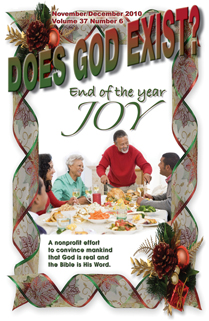

 It has always interested me that a
large number of our family
celebrations occur at the end of the year. Thanksgiving, Christmas, and
even Halloween take place as winter is coming on and the year draws to
a close. All of these events are family oriented. Even the most jaded
adult has a hard time not smiling at a three-year-old going out to a
Halloween party in a costume. Thanksgiving and Christmas have
traditionally been family times. Such songs as “I’ll Be Home for
Christmas” reflect the nostalgia that we all have as we remember happy
times with family members extending back to our childhood.
It has always interested me that a
large number of our family
celebrations occur at the end of the year. Thanksgiving, Christmas, and
even Halloween take place as winter is coming on and the year draws to
a close. All of these events are family oriented. Even the most jaded
adult has a hard time not smiling at a three-year-old going out to a
Halloween party in a costume. Thanksgiving and Christmas have
traditionally been family times. Such songs as “I’ll Be Home for
Christmas” reflect the nostalgia that we all have as we remember happy
times with family members extending back to our childhood.Back to Contents Does God Exist?, NovDec10.